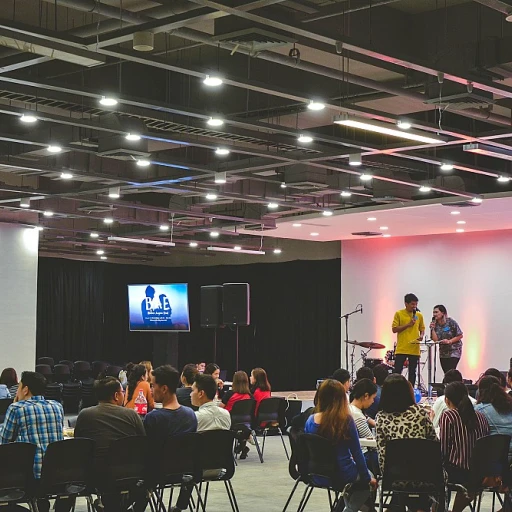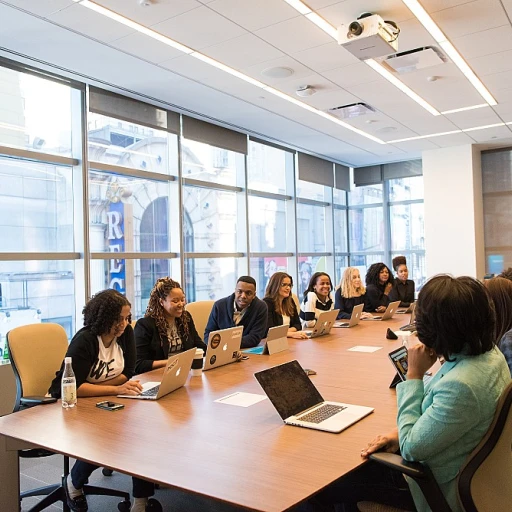
Understanding the UK Interview Landscape
Familiarising with the UK's Hiring Environment
The UK job market is renowned for its rigorous yet strategic interview processes. With the dynamic nature of industries, companies often innovate to enhance candidate experiences and streamline their hiring processes. This is a balancing act that calls for a keen understanding of cultural and operational nuances unique to the UK.
In recent years, the rise of efficient interview scheduling has become a cornerstone in securing talent. Companies are increasingly integrating scheduling software to manage the complexity of back-to-back interviews. This trend is evident as businesses aim to optimize their hiring procedures by ensuring a seamless schedule for candidates and interviewers.
Why this emphasis on back-to-back interviews? It's driven by the desire to enhance candidate experience without overwhelming the hiring team. It’s a strategic choice, reducing the need for repetitive interview days and compressing the interview process from weeks to days. This method offers consistent views and decisions from the hiring managers, aiding in a well-rounded decision-making process.
To put it in perspective, a smooth scheduling process reflects positively on a company’s brand. For instance, optimising logistics with pool distribution in UK companies not only highlights operational efficiency but mirrors the organized structure companies aim for in their interview schedule.
From Calendly to AI-driven scheduling tools, the aim is to create a productive environment for both candidates and companies. While UK companies and their hiring managers seek efficiency, it’s equally crucial to avoid any pitfalls that might diminish the whole experience, which is explored further when weighing the pros and cons.
Pros of Back-to-Back Interviews
Advantages of Conducting Interviews in Quick Succession
Scheduling back-to-back interviews can offer several benefits, especially within the fast-paced landscape of UK hiring. This approach often leads to a more streamlined experience, as candidates are seen within a short time frame, promoting an efficient interview process. Let's delve into some of the notable advantages:- Consistent Evaluation: With back-to-back interviews, hiring managers can evaluate candidates while their thoughts and impressions are fresh. This can lead to a clearer distinction between candidates, ensuring that the most suitable person is selected for the job.
- Time-Saving Efficiency: By scheduling interviews closely together, teams can significantly reduce idle time between interviews. This efficiency not only saves time but can also expedite the entire hiring process, allowing the company to secure top talent swiftly.
- Enhanced Candidate Experience: For candidates, a swift process can translate into a positive experience. Knowing that decisions are swiftly made can reduce candidate anxiety and show that the company values their time and effort.
- Strong Team Collaboration: Hiring teams can maintain a constant flow of communication. Back-to-back interviews facilitate easy sharing of interviewer's views and feedback with the entire team.
Cons of Back-to-Back Interviews
Potential Drawbacks of Consecutive Interviews
While scheduling back-to-back interviews might seem like an efficient strategy, it does come with its own set of challenges that can impact both the hiring team and the candidates. Understanding these cons is crucial for refining your interview scheduling process.
One of the primary concerns is the candidate experience. When candidates are scheduled for interviews one after the other, they may feel rushed or overwhelmed. This can lead to increased stress levels, which might affect their performance and the overall impression they leave on the interviewers. Candidates might not have enough time to reflect on the interview questions or prepare for the next session, potentially impacting their ability to showcase their best skills.
From the perspective of the hiring team, back-to-back interviews can lead to fatigue. Interviewers may find it challenging to maintain the same level of engagement and attentiveness throughout the day. This can result in less effective assessments and could potentially lead to biased views if the interviewer is not at their best. Additionally, without adequate breaks, interviewers might not have sufficient time to discuss their thoughts and impressions with other team members, which is a crucial part of the hiring process.
Another issue is the logistical complexity involved in scheduling interviews consecutively. Coordinating multiple schedules can be a daunting task, especially if there are last-minute changes or delays. This can disrupt the entire interview schedule and create a negative impression on the candidates. Utilizing effective strategies for managing these logistics is essential to avoid such pitfalls.
In conclusion, while back-to-back interviews can streamline the hiring process, it's important to weigh these potential drawbacks carefully. Balancing efficiency with a positive candidate experience and effective interviewer performance is key to successful interview scheduling.
Best Practices for Effective Interview Scheduling
Creating a Strategic Interview Schedule
When it comes to scheduling interviews, a strategic approach not only benefits the hiring team but also enhances the candidate experience. Coordinating a well-structured interview schedule can streamline the hiring process and avoid common pitfalls associated with back-to-back interviewing.- Allow Adequate Preparation Time: Ensure that both interviewers and candidates have ample time between each session. This helps in preventing fatigue and allows for proper review of candidates' credentials and interview questions.
- Balance Interviewer Workloads: To maintain engagement and consistency in assessing candidates, it is vital that interviewers are not overloaded with back-to-back interviews. Consider spreading the interviews over several days to ensure interviewers are fresh and attentive.
- Communicate Effectively: Clearly outline the interview process to candidates, including who they will meet and what to expect. Communication through email or scheduling software like Calendly can help minimize confusion and improve candidate engagement.
- Use Scheduling Tools: Leveraging tools like scheduling software can automate much of the interview scheduling process. These platforms allow candidates to choose time slots that best fit their schedules, reducing back-and-forth communication and possible sep messages.
- Incorporate Buffer Times: This accounts for unforeseen delays and provides an opportunity for interviewers to debrief and prepare questions for the upcoming candidate. Additionally, it allows candidates to join each session without feeling rushed.













